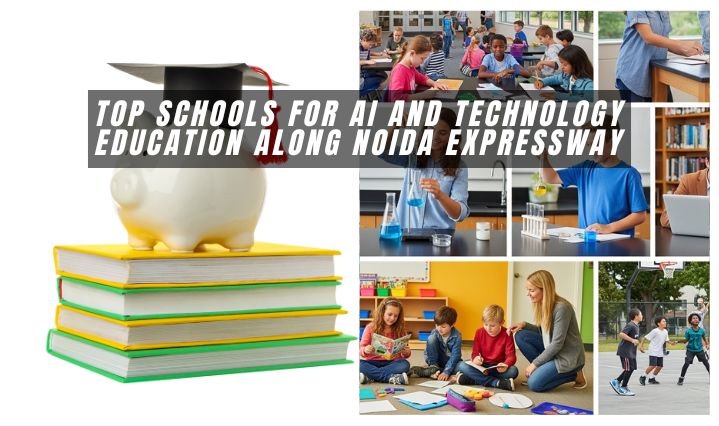Noida, a city once known primarily for its industrial and IT infrastructure, has rapidly emerged as a prominent hub for K-12 education. The city’s planned development and burgeoning population have fueled a boom in the educational sector, creating a diverse and dynamic ecosystem. From the well-established schools in older sectors to the modern campuses of Noida Extension and Sector 137, the educational landscape reflects the city’s own rapid ascent. This blog post delves into the current state of K-12 education in Noida, examining its strengths, challenges, and future prospects.
A Tale of Two Systems: Private and Public Schools
The educational infrastructure in Noida is a mix of well-funded private schools and government-run public schools. Private institutions, often affiliated with CBSE, ICSE, or even international boards like IGCSE and IB, dominate the landscape. These schools in Noida, many of which are located in key residential areas like Sector 62, Sector 137, and along the Noida Expressway, boast world-class facilities. They offer air-conditioned classrooms, swimming pools, auditoriums, and a wide array of extracurricular activities, from robotics to horse riding. They also tend to have a lower student-to-teacher ratio, allowing for more personalized attention.
In contrast, government schools face significant challenges related to infrastructure, teacher training, and student-to-teacher ratios. A 2025 survey by the National Council of Educational Research and Training (NCERT) highlighted a 16% learning gap between government and private school students in Noida—the widest in Uttar Pradesh. The report also pointed out that 78% of schools lacked support for students with special needs, and over half of the teachers had not received any ICT-related training. While government schools serve a crucial role in providing education to a vast majority of the population, the data underscores a need for substantial investment to bridge the quality gap.
The Curriculum and the Rise of Technological Integration
Noida’s schools predominantly follow the CBSE curriculum, which is the most widely adopted board in the region. This curriculum is known for its rigorous academic standards and structured approach. However, many of the leading private schools have gone a step further by integrating technology and innovative pedagogy into their teaching methods.
Digital Classrooms: Smart boards, interactive panels, and digital content are now commonplace in many schools, making learning more engaging and visual.
STEM and Robotics: Several schools have dedicated Robotics and STEM labs where students learn to code, build, and program robots. This hands-on approach promotes critical thinking and problem-solving skills, aligning with the national focus on skill-based education.
Virtual Reality (VR) and AI: Some progressive institutions are even exploring the use of VR labs and AI-driven features to create immersive learning experiences. This prepares students for a future where technology is a fundamental part of the professional landscape.
This push for technological integration is a direct response to the demands of the modern workforce and a comparative advantage over older, more traditional educational systems.
Watch Now: Top CBSE Schools in Noida – A Guide for Parents
Challenges and Opportunities
The rapid growth of Noida’s education sector has brought forth both challenges and opportunities.
Competition and Fees: The sheer number of private schools in Noida has created a highly competitive market, leading to a wide range of fee structures. Parents face the tough choice of balancing quality with affordability.
Teacher Training: While many schools are investing in technology, a significant challenge remains in ensuring that teachers are adequately trained to leverage these tools effectively. The NCERT survey on the lack of ICT training for teachers is a clear indicator of this gap.
Uniformity in Quality: The quality of education is not uniform across all schools. While some top-tier institutions are on par with the best in the country, others may lack the necessary resources or faculty expertise.
However, these challenges also present opportunities. The competitive environment is pushing schools to innovate and improve. The focus on technology and skill-based learning is an opportunity to create a generation of students who are not just academically sound but also job-ready. Furthermore, the private-public learning gap highlights the immense potential for public-private partnerships and community-led initiatives to uplift the standards of government schools.
In conclusion, Noida’s K-12 education system is a microcosm of the city itself: a dynamic, fast-growing ecosystem with a great deal of potential. While challenges persist, the commitment to technological integration and a focus on holistic development positions Noida as a leading educational hub, poised to set new standards for urban school education in India.

